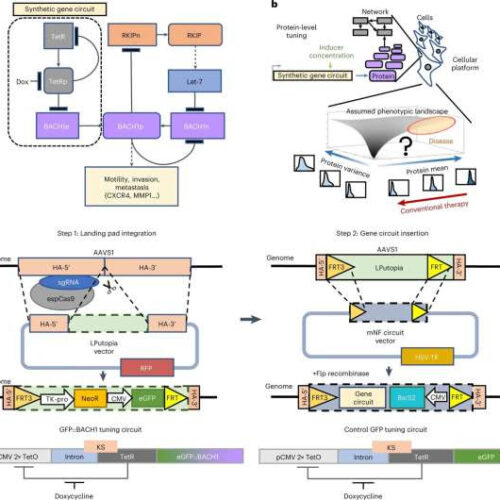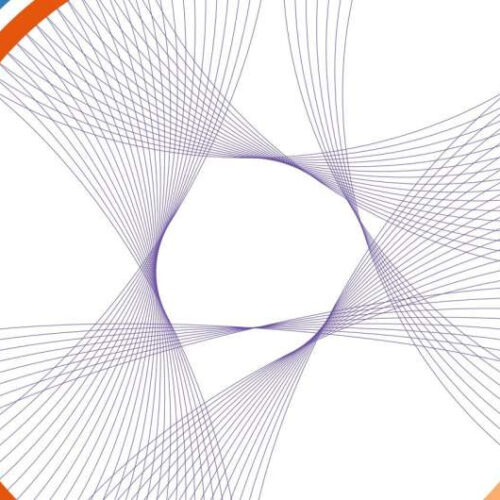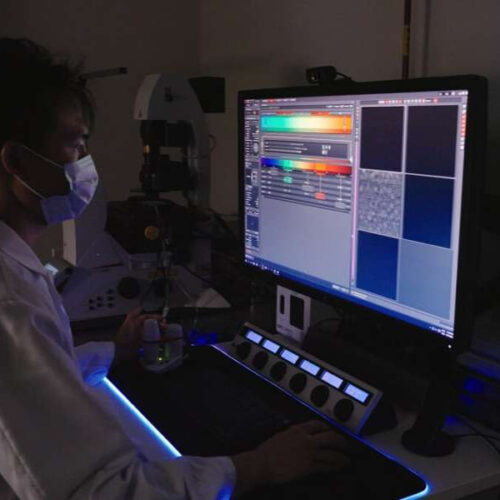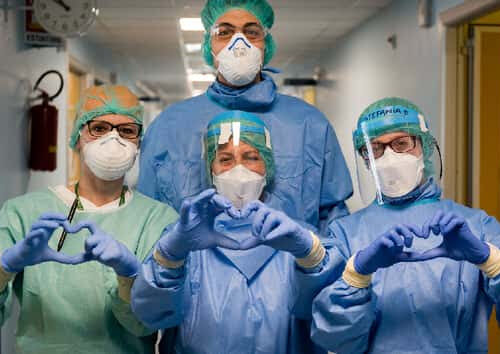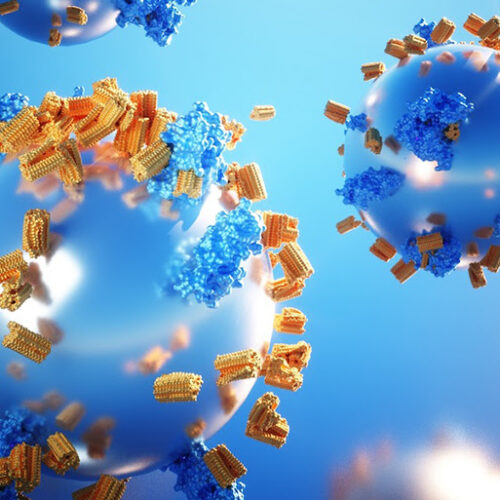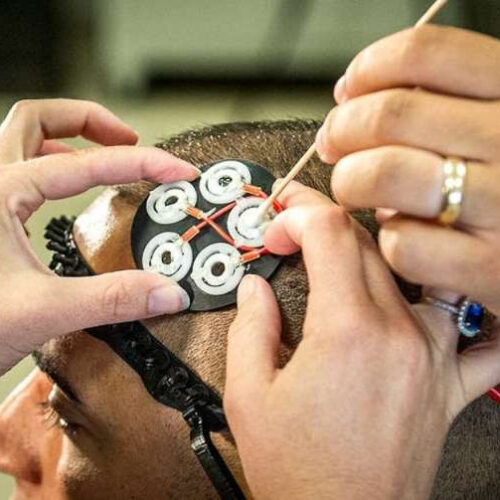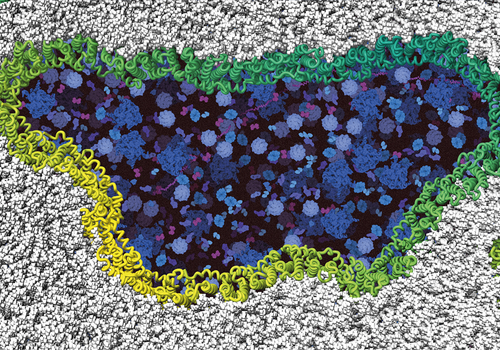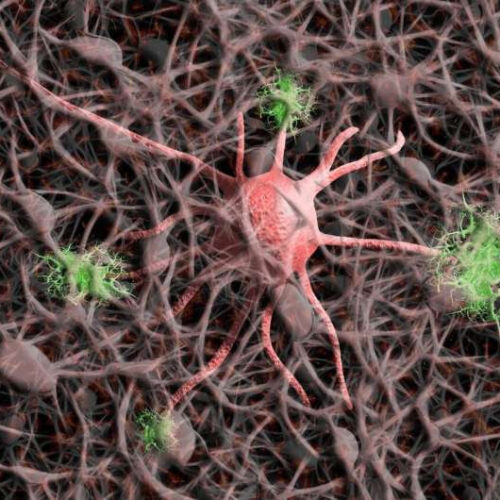by Stony Brook University Two-step strategy for repeatable site-specific gene circuit integration. a, Network diagram of regulatory interactions and phenotypic impacts for native and ectopic BACH1. ‘BACH1e’ indicates the ectopic BACH1 gene introduced and controlled via the mNF gene circuit, whereas ‘BACH1n’ indicates the native BACH1 gene; ‘BACH1p’ indicates the BACH1 protein. The same notation applies to...
Researchers show that immunoglobulin A fine-tunes the body’s interactions with microbes
by Children’s Hospital of Philadelphia IgG antibodies bind to overlapping communities of commensal gut microbes. Credit: Michael Silverman Immunoglobulin A (IgA) deficiency is the most common primary immune deficiency worldwide, but its presentation has puzzled physicians and researchers. Some with the disorder present with symptoms like recurrent infections, autoimmune disease, or allergies, whereas others have no symptoms...
Protein-based nano-computer evolves in its ability to influence cell behavior
by Pennsylvania State University Jiaxing Chen performs a live cell imaging experiment to study cell behavior using confocal microscopy. Credit: Penn State Huck Institutes of the Life Sciences The first protein-based nano-computing agent that functions as a circuit has been created by Penn State researchers. The milestone puts them one step closer to developing next-generation cell-based therapies...
Stomach stem cells hold promise as a cure for diabetes
By Paul McClure May 25, 2023 Researchers have converted human stomach stem cells into insulin-producing cells that respond to blood glucose levels, mimicking the actions of healthy pancreas cells Depositphotos Researchers have taken stem cells from the human stomach and converted them into insulin-producing cells that respond to changes in blood glucose levels like healthy pancreatic...
Study Finds 1 In 10 Get Long COVID After Omicron, Starts Identifying Key Symptoms
Lauran Neergaard May 26, 2023, 04:18 AM EDT WASHINGTON (AP) — About 10% of people appear to suffer long COVID after an omicron infection, a lower estimate than earlier in the pandemic, according to a study of nearly 10,000 Americans that aims to help unravel the mysterious condition. Early findings from the National Institutes of Health’s...
Rapid Detection of Misfolded Proteins
MAY 22ND, 2023 CONN HASTINGS DIAGNOSTICS, MEDICINE, NEUROLOGY Scientists at the University of Minnesota have developed a method to detect misfolded proteins more rapidly and sensitively. The technique could eventually allow clinicians to diagnose diseases that involve misfolded proteins more easily, including Alzheimer’s, Parkinson’s, and Creutzfeldt-Jakob disease. The approach involves an enhancement to an existing assay...
Rhythmically stimulating the brain with electrical currents could boost cognitive function
by Shrey Grover, The Conversation Transcranial alternating current stimulation involves placing an electrode on a person’s scalp. Credit: J.M. Eddins Jr/U.S. Air Force via Flickr, CC BY-NC Figuring out how to enhance a person’s mental capabilities has been of considerable interest to psychology and neuroscience researchers like me for decades. From improving attention in high-stakes environments, like air traffic management, to...
Researchers identify potential new treatment for those who act out their dreams while sleeping
by The Mount Sinai Hospital Credit: Unsplash/CC0 Public Domain Mount Sinai researchers have published what they say is the first study to identify a new form of treatment for rapid eye movement (REM) sleep behavior disorder. This condition affects more than 3 million Americans, mostly adults over the age of 50, who often unknowingly physically act out their...
Under control to the very end – how our cells kill themselves
UNIVERSITY OF BASEL IMAGE: NINJURIN-1 PROTEINS ASSEMBLE (GREEN/YELLOW) INTO FILAMENTS AND RUPTURE THE CELL MEMBRANE (GRAY) UNTIL THE CELL DISINTEGRATES COMPLETELY. INTRACELLULAR COMPONENTS ARE SHOWN IN BLUE. CREDIT: BIOZENTRUM, UNIVERSITY OF BASEL Every day, millions of cells die in our body. Other than generally assumed, cells do not simply burst at the end of their...
The brain’s protein-destruction machine learns new tricks at synapses, potential target for neurological treatments
by Aarhus University Credit: Pixabay/CC0 Public Domain Scientists have long known that the cells’ “protein destruction machine,” the proteasome, plays a crucial role in protein clearance within the brain. However, a new study published in Science has revealed that its essential component, the 19S regulatory particle, has an independent “moonlighting” role at synapses, and thus might offer new...

